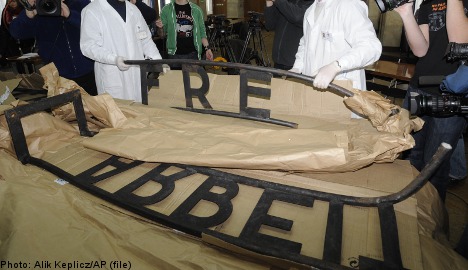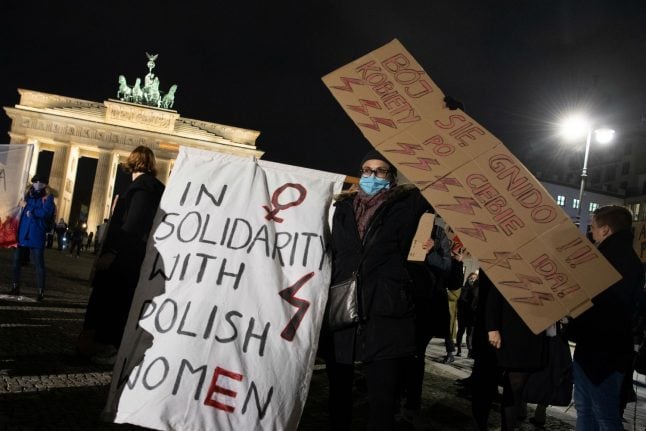Anders Högström was extradited to Poland from Sweden in April and initially remanded for three months to give prosecutors probing December’s theft more time to question him.
The court in the southern Polish city of Krakow accepted a prosecution request to keep him behind bars until September 9th, Poland’s PAP news agency reported.
Högström was arrested in his homeland on a Polish warrant in February. He risks 10 years in prison if convicted.
Prosecutors have said Högström denies plotting the theft of the gateway sign from the site of the camp in the southern Polish city of Oswiecim, which has became a notorious symbol of genocide by the occupying Nazi Germans.
Polish police recovered the five-metre metal sign – which means “Work Will Set You Free” in German – two days after it went missing.
They arrested and charged five Polish men, three of whom, considered relatively small fry, have already been sentenced to two and a half years in prison.
The two others, suspected of playing a far more prominent role in the theft, are to be tried after Högström has been questioned.
In 1994, Högström founded the National Socialist Front, a Swedish neo-Nazi movement he ran for five years before quitting.
He has told Swedish media he was to act as an intermediary to pick up the sign and sell it to a buyer, adding, however, that he informed Polish police about the people behind the plot.
The sign, which had been cut into three parts, was returned by investigators to the Polish state-run Auschwitz museum on January 21st, less than a week before commemorations for the 65th anniversary of the camp’s liberation by Soviet troops.
Of the six million Jews who perished in the Holocaust, 1 million were murdered at Auschwitz, mostly in the camp’s notorious gas chambers, along with tens of thousands of others including Poles, Roma and Soviet prisoners of war.




 Please whitelist us to continue reading.
Please whitelist us to continue reading.
Member comments